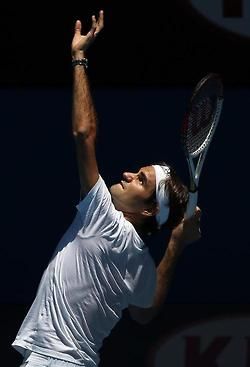
“We don’t rise to the level of our expectations, we fall to the level of our training.”
― Archilochus
Most athletes berate themselves for not being mentally strong during competition, either at the critical moments or the most important contests. What they fail to realize is that they “expect” to be mentally tough during the most important moments but they fail to “train” for those moments.
Although by definition being mentally tough is a trait. Being mentally strong, mentally resilient or mentally mature can be improved like a muscle. The brain is a muscle that needs repetition to become stronger.
Nature vs. Nurture. How much of your mindset is inborn versus learned? I’d say that it is a combination of both. Just like confidence comes in two types: static and dynamic, so does mental strength. One part you are born with and the other part you learn and earn through experience and training. Here are questions that athletes should ask themselves:
How much do you exercise versus how much time do you exercise your mind?
How often do you go to the gym versus how often do you work out your mind?
How often do you take lessons or work on your technique or skill versus how many lessons do you take on the mental game?
In other words, preparation is much more important than the actual performance. I’ve always said whoever prepares better wins not whoever performs better wins. This applies to the mental game as well. Of course preparation will lead to optimal playing and bring you closer to the by-product of winning but the sense of urgency should be BEFORE the contest not DURING. During the contest just let things happen. Let your preparation shine. If you are not practicing and training your mind then you cannot expect to be mentally strong when it counts. Just because you expect to be aware of the right things and focus on the right moments doesn’t mean it will just happen.
Sport-specific training is important for the mind game but so is general mental training. When driving to work or class and there is an accident on the other side of the road, train yourself to ignore it – don’t rubber neck. You are training your brain to focus on what’s important (the road right in front of you) and not on distractions that make you lose your focus. Whenever you think of something negative pretend to cross it off or erase it from your mind’s eye and toss it to the side – blank slate it – clear the white board.
When reading a book, are you processing each word or is your mind wandering to something else? Whenever your to do list or grocery list pops into your mind then stop and go back to when you last remember the words that you were reading.
Mind control is the first step to success in sports. The next step is to train your mind. The third step is to implement your training when it counts, in competition. The final step is to evaluate your mental performance to learn for the next time.
Rise to the level of your training rather than fall to the level of your lack of training.
I always welcome feedback at angeloarossetti @ gmail .com.
You can learn more about a couple of tennis GUINNESS WORLD RECORDS™ that I have been a part of:
Our Inspiration – 2 World Records 2 Minute Video
FOX News Story
Inspirational Tennis Story: Tennis Begins with Love
If you found this article of value please consider making a donation to Save the Children. Otherwise, please share this article so that we can educate, inform and inspire others.
Make a Donation
If you are interested in my new book TENNACITY: The Tenacious Mindset On & Off the Court, please complete the form below.


